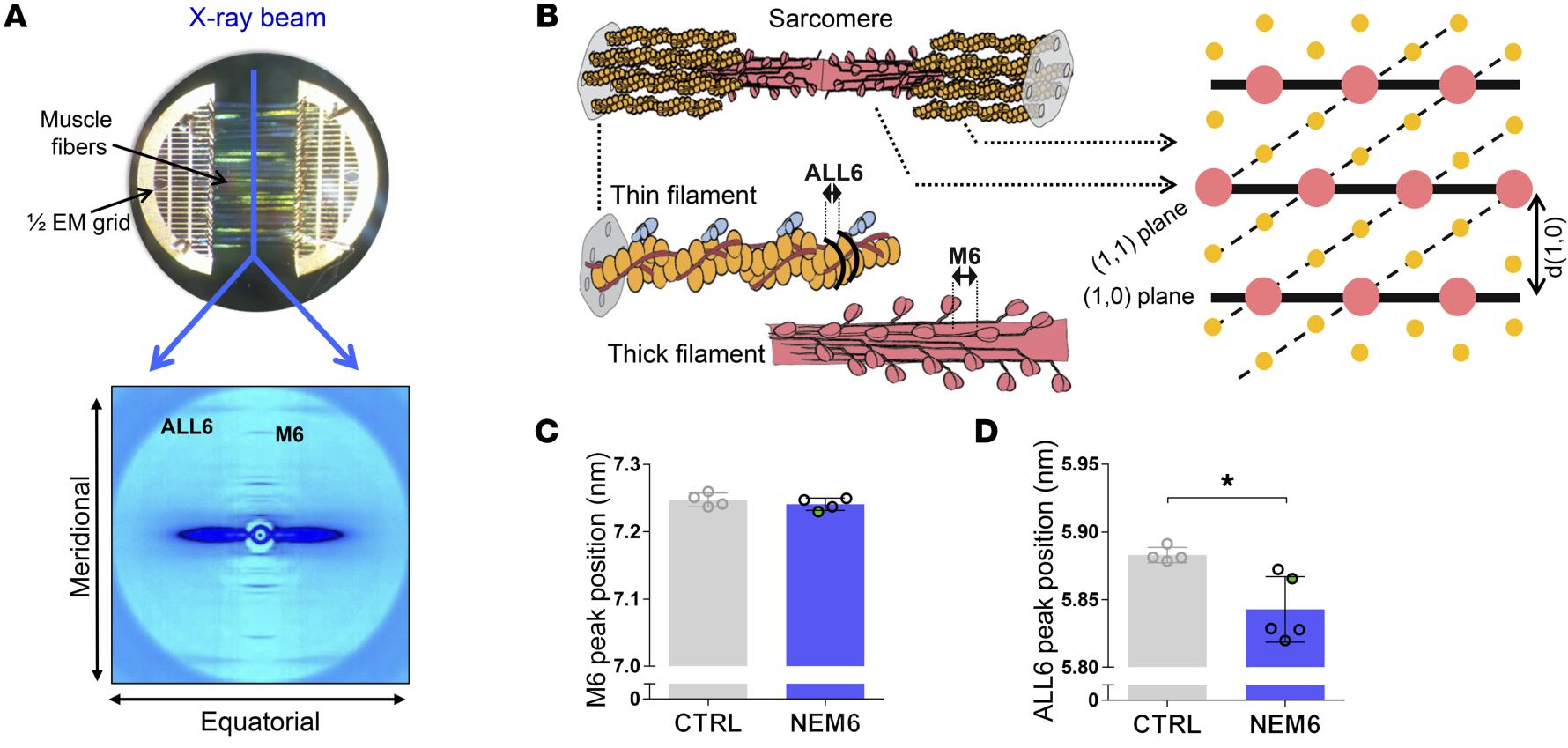
Nemaline myopathy (NM) is one of the most common congenital non-dystrophic myopathies and is characterized by severe hypotonia, muscle weakness, feeding difficulties, respiratory failure, and the presence of nemaline bodies (rods) in skeletal muscle biopsies. One form of nemaline myopathy is caused by mutations in the KBTBD13 (NEM6) gene. In addition to weakness, NEM6 patients have slow muscle relaxation, compromising contractility and daily-life activities. The role of KBTBD13 in muscle is unknown, and the p athomechanism underlying NEM6 is undetermined. A combination of transcranial magnetic stimulation-induced muscle relaxation, muscle fiber- and sarcomere-contractility assays, super-resolution microscopy, and low angle X-ray diffraction on the BioCAT Beamline 18ID revealed that the impaired muscle relaxation kinetics in NEM6 patients are caused by structural changes in the thin filament, a sarcomeric microstructure. Using homology modeling, binding- and contractility assays with recombinant KBTBD13, novel Kbtbd13-knockout and Kbtbd13R408C-knockin mouse models and a transgenic zebrafish model the authors discovered that KBTBD13 binds to actin – a major constituent of the thin filament - and that mutations in KBTBD13 cause structural changes impairing muscle relaxation kinetics. The authors propose that this actin-based impaired relaxation is central to NEM6 pathology.
See: Josine M. de Winter, Joery P. Molenaar, Michaela Yuen, Robbert van der Pijl, Shen Shengyi, Stefan Conijn, Martijn van de Locht, Menne Willigenburg, Sylvia J.P. Bogaards, Esmee van Kleef, Saskia Lassche, Malin Persson, Dilson Rassier, Tamar E. Sztal, Avnika A. Ruparelia, Viola Oorschott, Georg Ramm, Thomas E Hall, Zherui Xiong, Christopher N. Johnson, Frank Li, Balazs Kiss, Noelia Lozano-Vidal, Reinier Boon, Manuela Marabita, Leonardo Nogara, Bert Blaauw, Richard J. Rodenburg, Benno Kϋsters, Jonne Doorduin, Alan H Beggs, Henk Granzier, Ken Campbell Weikang Ma, Thomas Irving, Edoardo Malfatti, Norma Romero, Robert J. Bryson-Richardson, Baziel G.M. van Engelen, Nicol C. Voermans, and Coen A.C. Ottenheijm. “KBTBD13 is an actin-binding protein that modulates muscle kinetics,”. J. Clinical Investigation, 2020 Feb 3;130(2):754-767. DOI: 10.1172/JCI124000.